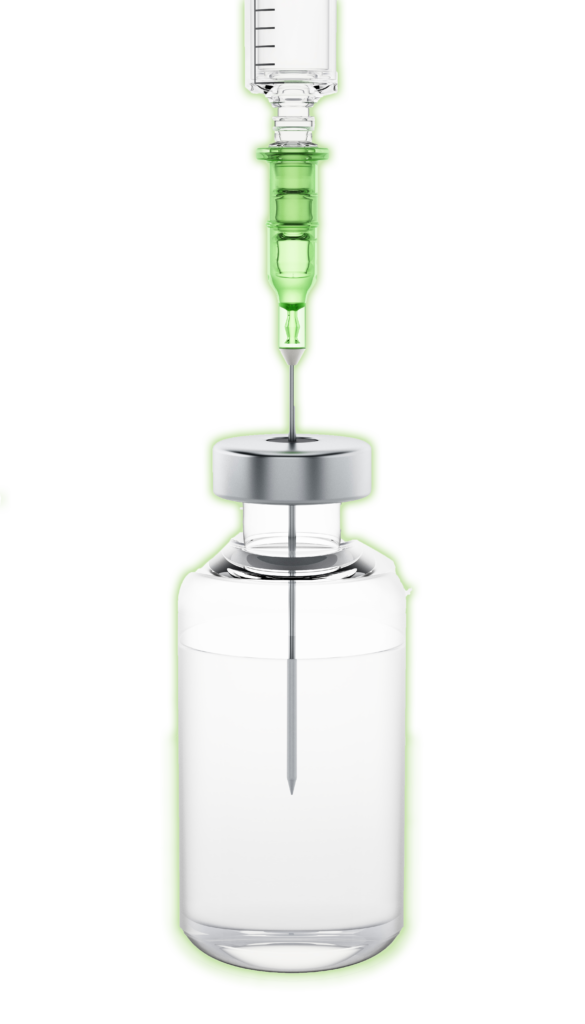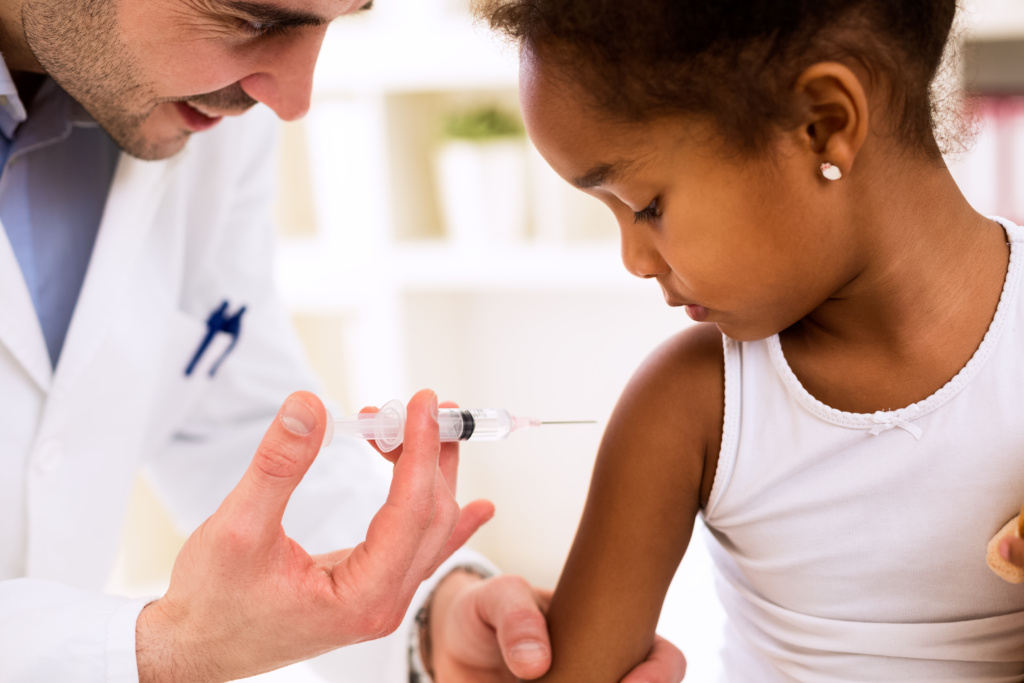A ‘Shot’ to Keep Kids Safe:
Why vaccinations are a must in the effort to protect children and other at-risk populations
Article By Lisa Iannucci, CTW Features
Right in the nursery when a baby is born, it receives its first vaccination – a shot protecting it against Hepatitis B, a serious liver infection. This is the start of a lifetime of vaccinations to help strengthen the baby’s immune system and fight against such preventable illnesses as measles, mumps, rubella and pneumococcal disease.
But the mere mention of the word vaccine can spark heated debates. On one side are parents who believe in the purpose of the vaccinations and stick to the 18-year schedule set forth for their children by the American Academy of Pediatrics. On the other side of the debate are parents who do not vaccinate their children because of religious or other beliefs. Anti-vaccination proponents (nicknamed anti-vaxxers) have also long argued a link between autism and vaccinations.
 Stuck in the middle are those who, whether they want a vaccine or not, have compromised immune systems and cannot have them, leaving their susceptible bodies exposed to these potentially deadly diseases.
Stuck in the middle are those who, whether they want a vaccine or not, have compromised immune systems and cannot have them, leaving their susceptible bodies exposed to these potentially deadly diseases.
“There are a host of diseases – such as Diphtheria, haemophilus, measles and polio – over many hundreds of years that took the lives of many humans, children in particular, and also caused a lot of disease and disability,” explained Carl Fichtenbaum, professor in the division of infectious diseases at the University of Cincinnati College of Medicine in Clifton, Ohio. “People just don’t remember that kind of sadness. That’s why we looked for solutions and now have routine vaccinations against 11 viruses and six bacteria.”
According to Dr. Susan Besser, a primary care provider specializing in Family Medicine, with Mercy Personal Physicians at Overlea in Baltimore, Maryland, delaying vaccinations serves no practical purpose.
“The times that are given are the optimal times for vaccinations and the best times that that child can develop immunity,” she said.
In addition to that initial Hepatitis B shot, babies also receive the Pneumococcal vaccination and vaccinations for Rotavirus, Diphtheria, tetanus, and pertussis, MMR (measles, mumps and rubella), Hepatitis A, and Varicella (chicken pox) over the first few years of its life.
Regardless of vaccinations, Besser also explained that no disease or virus is truly eradicated and any – or a new variant of it – can come back. “Earlier this year, there was a new paralytic illness that looked like polio, and sounded like polio, but wasn’t exactly polio,” she said.
According to the World Health Organization, the poliovirus mainly affects children under 5 years of age and 1 in 200 infections leads to irreversible paralysis. Although polio cases have decreased by over 99% since 1988, there were still 33 reported worldwide cases in 2018. WHO states that failure to eradicate polio from these last remaining strongholds could result in as many as 200,000 new cases every year, within 10 years, all over the world.
“Everyone even thinks that smallpox is eradicated, but it’s out there somewhere, even in a lab where we hope it stays.”
Other diseases have been also making a comeback. From January 1 to May 17, 2019, 880 individual cases of measles were confirmed in 24 states and in 2018, the CDC reported 13,439 cases of whooping cough.
This is enough information, according to Besser, to encourage parents to vaccinate their children. “In addition to saving yourself, there’s something called herd immunity,” said Besser. “If everyone is vaccinated, then we don’t have an epidemic because the disease stops. It can’t go anywhere because it can’t infect a whole bunch of folks.”
This is especially important for children whose immune systems are compromised due to illness or chemotherapy. ‘You run the risk that these children, who don’t have sufficient immunity to mount a defense and develop antibodies to the disease, will get sick,” said Besser.
According to the Centers for Disease Control (CDC), millions of children are safely vaccinated each year and the most common side effects are mild, such as pain or swelling at the injection site, fussiness, or a low-grade fever. But according to the CDC, serious side effects like seizures or convulsions, non-stop crying for three hours or more, very high fevers (above 104 degrees), serious allergic reactions, severe brain reactions, and low blood counts are so rare (about 1 in 14,000 for seizures, for example), they question whether those reactions are actually caused by the vaccines or other underlying illnesses.
“People are making decisions that vaccines are unhealthy based upon a lot of misinformation and a lot of poorly gathered, unscientific information,” said Fichtenbaum. “I don’t go to my car mechanic to ask him for the best recipe to make dinner, yet we listen to people who reconfirm our preconceived beliefs.”
There are no federal laws mandating vaccinations, but each state has its own requirements to allow children to attend school and its own exemptions for those who do not want their child vaccinated. In addition, there are laws for removing unvaccinated children from childcare and school if there is an outbreak.
For example, in New York, according to the State Department of Health, children in daycare, Head Start, nursery school or pre-kindergarten must be immunized against diphtheria, tetanus, pertussis, measles, mumps, rubella, polio, hepatitis B, varicella, Hib, and pneumococcal disease. However, immunization requirements can be waived if parents hold “genuine and sincere religious beliefs” against having their child immunized.
In Arkansas, exemption applications require parents sign a statement of understanding that “at discretion of the Department of Health, the unimmunized child or individual may be removed from daycare or school during an outbreak if the child or individual is not fully vaccinated.” In Georgia, children who have not been immunized may be excluded from the school or facility during an epidemic until they are either immunized against the disease, unless they present valid evidence of prior disease, or the epidemic or threat no longer constitutes a significant public health danger.”
Fichtenbaum suggests that all parents research vaccinations. “No vaccine and no medication is without risk, but it’s important to understand that the risks are not as bad as people say they are, and the benefits far outweigh any of the risks.”
© CTW Features
**Did you know** Vaccines for Children program (VFC) – The VFC program offers vaccines at NO cost to eligible children through health care providers enrolled in the program. Vaccinating on time means healthier children, families, and communities. Find out if your child qualifies for the VFC program at cdc.org

